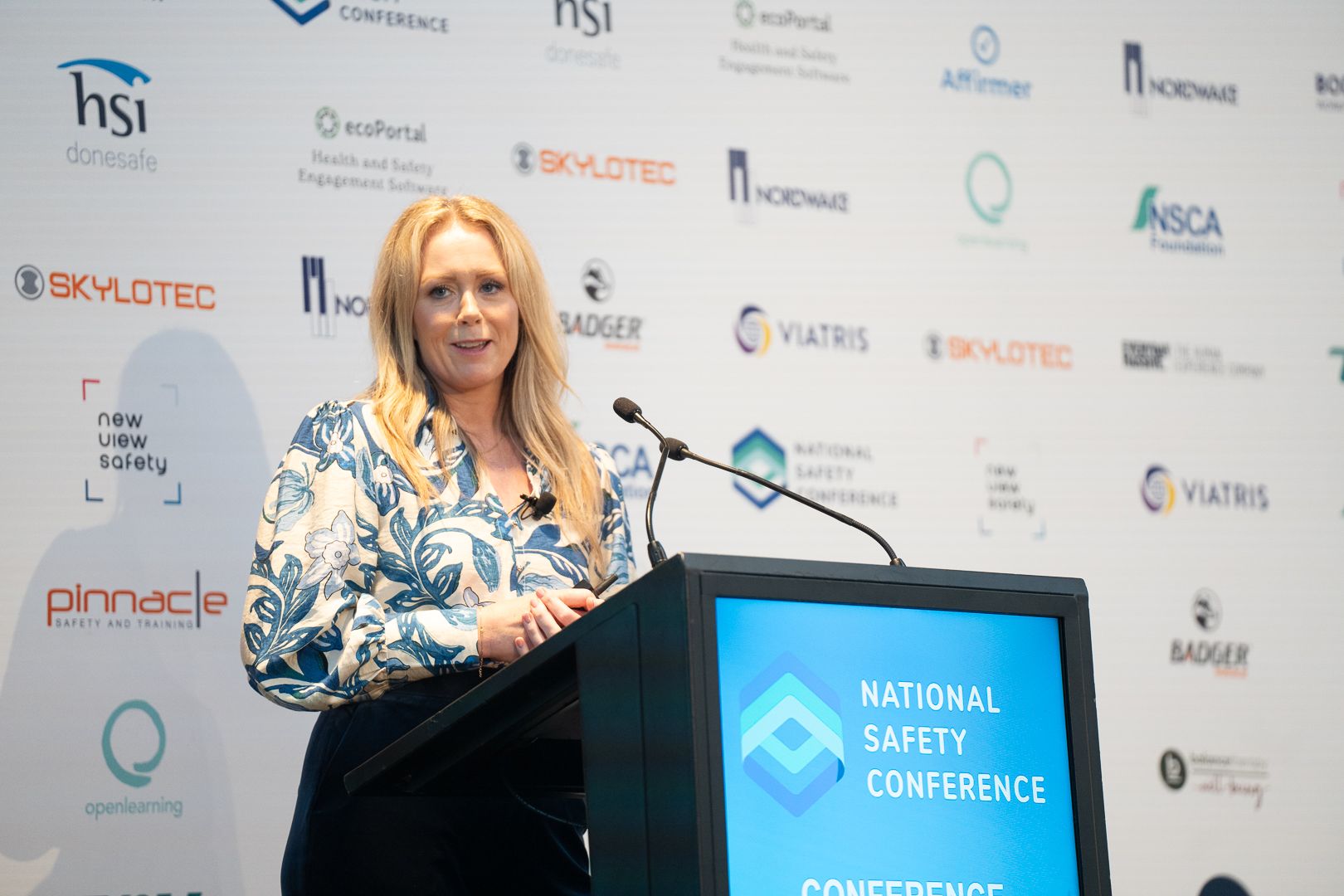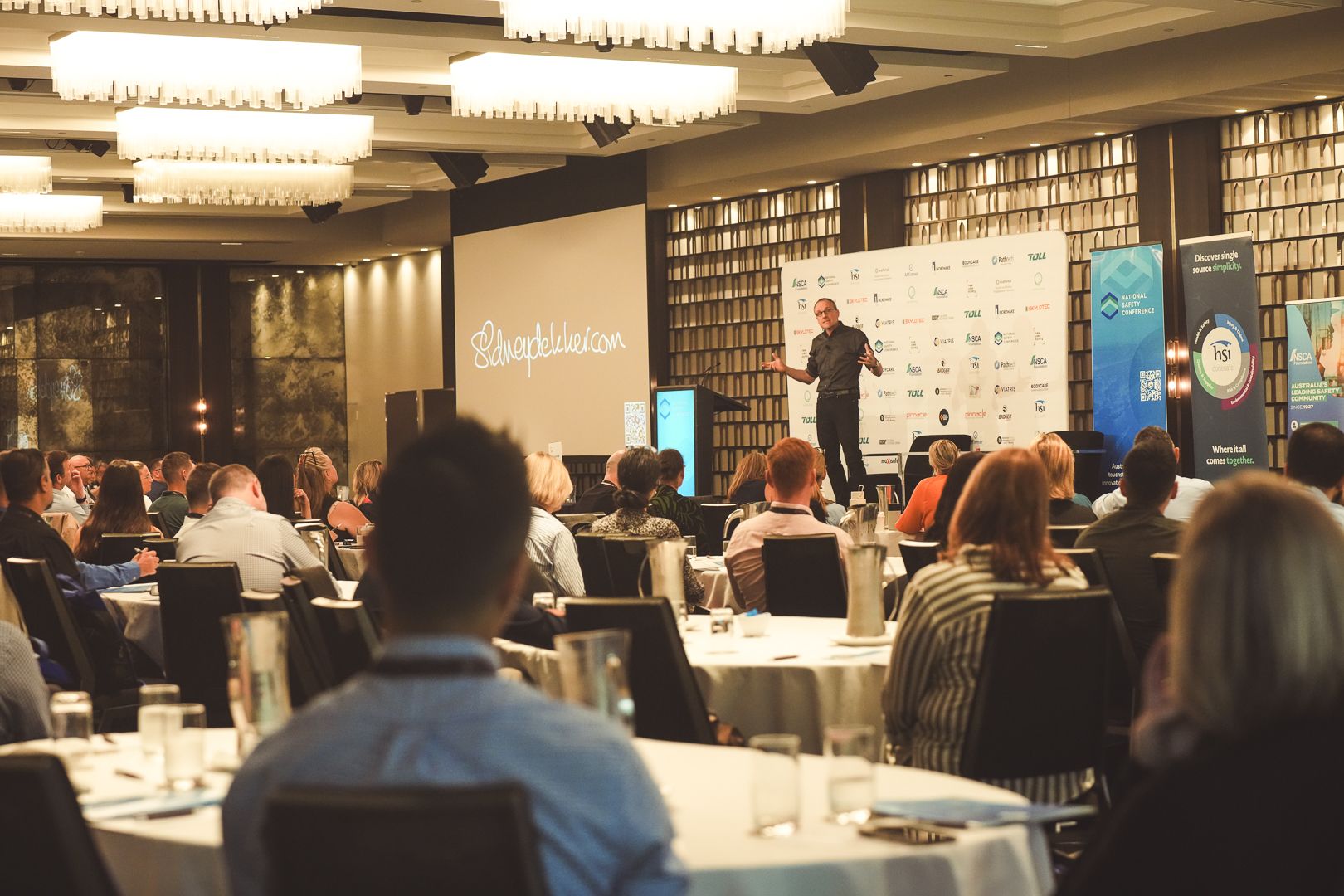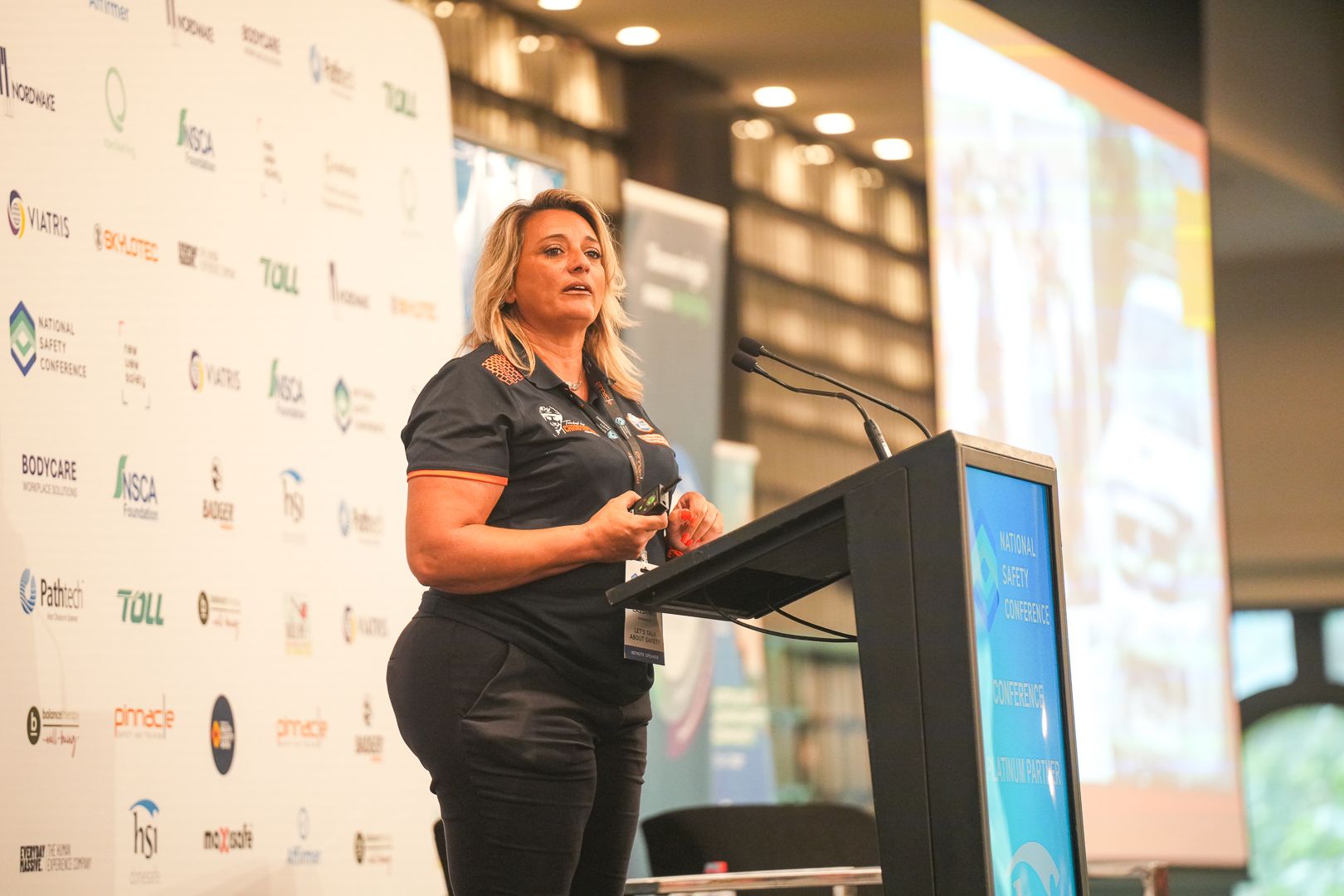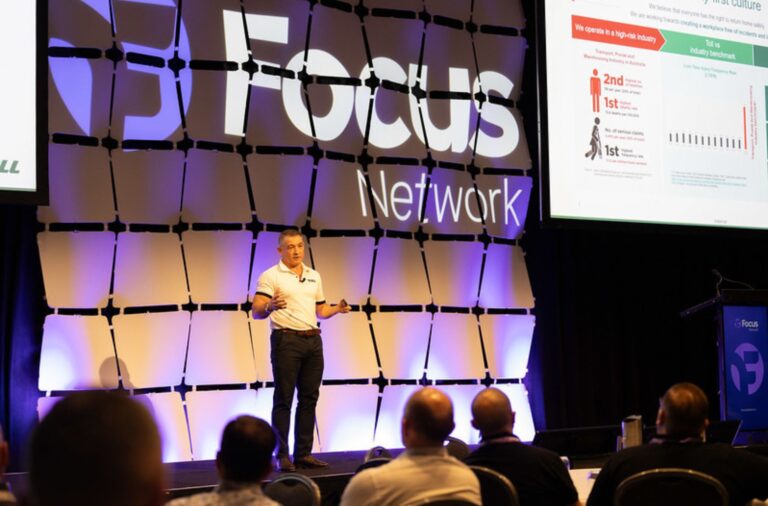
“Thank you for not running out of the room.”
That’s how Grace Molloy, CEO of Menopause Friendly Australia, opened her keynote last month at the NSCA National Safety Conference in Sydney. From the moment she began she upheld the message that menopause isn’t just a women’s health issue. It’s a workplace issue. A wellbeing issue. A psychological safety issue. And one that affects everyone — not just those experiencing it.
A Hidden Risk in Plain Sight
Despite being a registered nurse, Grace shared that she had learned “nothing about menopause” in her training — a stark reality that reflects a broader societal blind spot. That lack of understanding trickles into workplaces, leadership, and policies; often leading to overlooked risk and under-supported employees.
Yet the impact is real. Grace shared that “one in four people will experience severe symptoms. Three in four will have moderate symptoms. That’s a productivity issue, not just a gender issue.”
The symptoms? “Hot flushes, anxiety, memory loss, or palpitations.” And as Grace pointed out, “We can’t leave hot flushes, anxiety, memory loss, or palpitations at the door when we go into work.”
And the ripple effects go beyond the individual. Grace shared the story of a male train driver in the UK who had to call in unfit for duty after being kept up all night by his partner’s severe night sweats. The result? A safety risk he wasn’t willing to take.
As Grace put it:
“It’s not just the person going through menopause who’s affected. It’s also their partners, families, and co-workers.”
Connecting the Dots to Psychosocial Risk
Grace’s presentation connected menopause symptoms directly to many of the psychosocial hazards now outlined in Australia’s workplace legislation: fatigue, anxiety, mood fluctuations, difficulty concentrating, and loss of confidence.
These aren’t simply personal issues, they’re workplace health and safety concerns. Yet most organisations don’t have the training or frameworks in place to identify or manage them.
Grace posed a powerful question:
“How many of your stress claims might actually be menopause-related?”
And the legal risk is growing. She noted that “there are 100 current tribunal cases in the UK for dismissal or discrimination related to menopause.”
Why Culture Matters More Than Policy
Education is essential — but culture is where real change begins. Grace shared a story of a 28-year-old male safety rep at a mining company who, after a menopause training session, took the initiative to give a 15-minute toolbox talk on the topic. The reaction? Overwhelmingly positive.
“People are curious. They want to understand how to support their colleagues.”
Grace also highlighted a common misconception: that menopause is short-lived or easy to manage. “We don’t manage menopause the way we manage parental leave – it’s not a defined period. It’s a transition that can last years.” For some, that transition may span a decade. For others, it can come on suddenly due to surgery, cancer treatment, or genetic conditions.
The Business and Legal Case for Action
The statistics Grace presented speak volumes:
- 45% of women aged 45–55 say menopause symptoms impact their work.
- Half of women who leave the workforce early cite menopause as a key factor.
- Only 1 in 10 feel comfortable speaking to their manager about it.
The consequences for organisations? Lost productivity. Rising attrition. Legal risk. And missed opportunities to support experienced, valuable team members.
So, What Can You Do?
Grace outlined three critical questions for organisations to ask themselves:
- How can we open the conversation about menopause in our workplace?
- What supports – policies, training, or resources – do we already have?
- Where are the gaps in our culture or processes that might prevent someone from speaking up?
She also suggested practical, low-barrier actions that can create real impact:
- Training for managers to handle conversations with empathy and confidence
- Clear, inclusive policies
- Adjustments to physical work environments (e.g. temperature control, menopause-friendly PPE)
- Tools like action plans and checklists to guide support
And at the heart of it all: psychological safety.
Grace closed with one of her most important takeaways:
“The most impactful thing workplaces can do? Create a culture where people feel safe to say, ‘I’m not okay – and I need support.’”
Menopause belongs in the safety conversation.
Thanks to Grace Molloy’s powerful presentation at the NSCA Safety Conference in Sydney, it’s clearer than ever that menopause intersects with psychosocial risk, mental health, gender equity, and workplace safety. And it starts not with policy, but with empathy, awareness, and honest dialogue.
About Grace Molloy
Grace Molloy is the Founder and CEO of Menopause Friendly Australia, an Australian Registered Nurse and member of the Australasian and International Menopause Societies. She has a background in financial audit, business development and commercial partnerships. She is a member of Standards Australia’s Occupational Health and Safety Management Committee reviewing the proposed International Standard “ISO45010 Menstruation, Menstrual Health and Menopause in the Workplace” Menopause Friendly Australia helps workplaces improve productivity, achieve gender equality targets and promote workplace wellbeing by improving the way people experience menopause at work.
Share:



